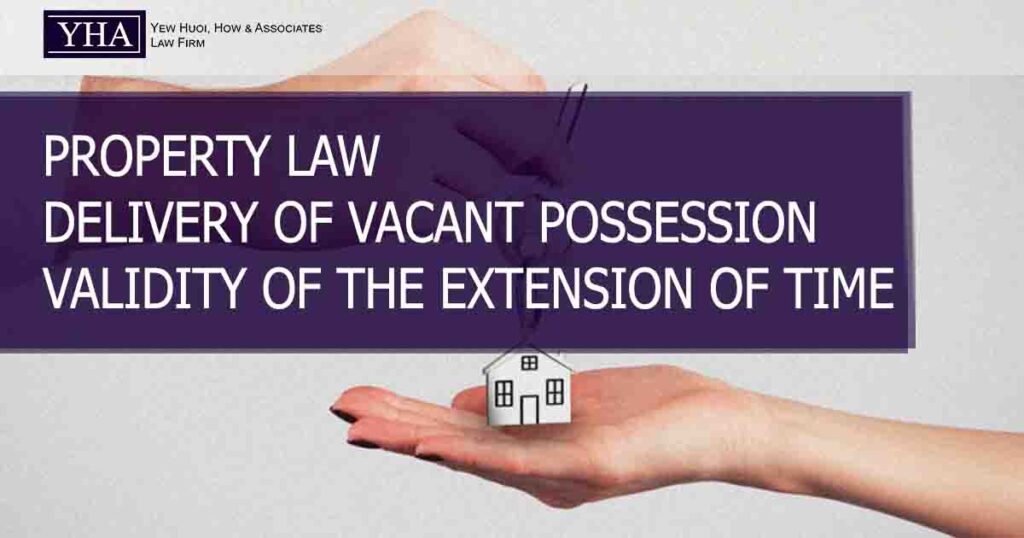A, a purchaser has entered into a sales and purchase agreement (“SPA”) with B, a developer. Due to the fact that developer B could not deliver vacant possession on time, developer B had obtained an extension of time from the Housing Controller (“the Controller”). As a result, the house was clearly not delivered on the stipulated date and A wanted to claim for liquidated ascertained damages (“LAD”) over delayed completion of the property purchased. He also sought to challenge the validity of the extension of time granted by the Controller.
Q: When does the LAD start?
A: The Federal Court decision in PJD Regency Sdn Bhd says the date for the calculation of the LAD starts from the date booking fee was paid. Not from the date of the SPA was signed. However in Toh Ai Shi the court distinguished PJD Regency Sdn Bhd. The court note that there was no booking fee paid but only payment of “stakeholder sum” to the lawyer. So, LAD starts from the date the SPA was signed.
Q: Can A challenge the extension of time granted by the Controller?
A: Yes. In Toh Ai Shi the court observed that A should challenge the Controller’s extension of time by way of judicial review. This is because according to Ang Ming Lee and Alvin Leong (See our earlier legal updates), the Controller does not have power to extend time for delivery of vacant possession.
Q: Can developer B rely on Regulation 11(3) of the Housing Development (Control and Licensing) Regulations 1989 (“HDR 1989”) to argue that the extension is valid?
A: No, Ang Ming Lee and Alvin Leong held that Regulation 11(3) HDR 1989 allows Minister to give extension of time. However, Controller does not have such power.
Q: What can A do if A wants to challenge the validity of the extension of time?
A: A shall file by way of judicial review application to the High Court to nullify the extension of time by the Controller first. Then can A claim LAD against developer B. In the latest decision of the High Court in Toh Ai Shi, the Plaintiff’s action was dismissed because he filed an Originating Summons against the developer and did not name the Controller as a party. However, it must be kept in mind, judicial review application has to be made within 90 days from the date the decision is made.
Cases in point:
- PJD Regency Sdn Bhd v Tribunal Tuntutan Pembeli Rumah & Anor And Other Appeals [2021] MLRAU 8
- Toh Ai Shi v Talent Team Sdn Bhd & Anor [2023] 7 MLJ 262
- Ang Ming Lee & Ors v Menteri Kesejahteraan Bandar, Perumahan Dan Kerajaan Tempatan & Anor And Others Appeals [2019] 6 MLRA 494
- Alvin Leong Wai Kuan v Menteri Kesejahteraan Bandar [2020] 6 MLJ 191

